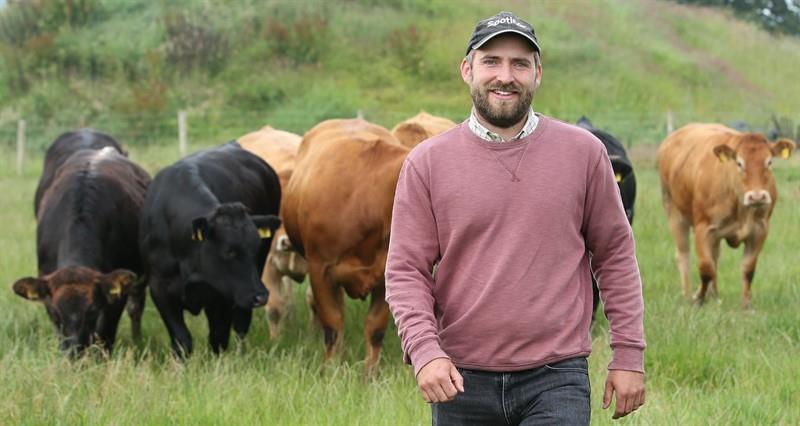Presented by 28-year-old North Yorkshire farmer, James Johnson, the forecast anticipates far drier, hotter summers and suggests the emergence of new crops; greater collaboration to secure water supplies for food production; a changing landscape with more drought resistant tree species; a greater role for farm-scale renewable energy and even a different look to the working day and farming year.
The forecast is designed to prompt discussion about the climate challenges facing Yorkshire farmers now and in the future, and in particular the need for a more joined-up integrated water management strategy to help British farmers achieve their goal of leading the world in climate-friendly food production.
Speaking ahead of the first day of the Show, NFU President, Minette Batters, will urge government, water companies and farmers to properly invest in water management as a critical response to climate change and call for a long-term, collaborative approach.
鈥淎s the UK gears up to host the UN climate change conference 鈥� COP26 鈥� in November, the nation will be at the centre of global discussions on how to respond to climate shifts,鈥� she said. 鈥淔rom our farmers鈥� perspective, climate change is already here. Since 2002 we have recorded our top-ten warmest years on record and in Yorkshire they are already at the sharp end of increasingly extreme weather events.鈥�
The Intergovernmental Panel on Climate Change already accepts that climate change is affecting our food security, predicting that food supply could well become more unstable as extreme weather leads to greater disruption of supply chains.
Mrs Batters added:
"We cannot underestimate the importance of food production as we chart a course through our climate challenges. We can deliver on our net zero pledge while retaining, if not growing, our agricultural capacity, but adopting a new approach to water will be essential.鈥�
Yorkshire farmers suffered significant damage when the county experienced three once-in-100-year floods in 2019/20, but consistently hotter, drier summers also have the potential to severely impact food production in the county. Alongside growing 14% of the nation鈥檚 arable crops, the county also produces 19,000 hectares of potatoes, 16,000 hectares of field vegetables and 200 hectares of glasshouse crops 鈥� all relying increasingly on irrigated water in the summer.听
With extensive upland areas and permanent pasture taking up more than a third of the county鈥檚 geographic area, the impact of increasing drought will also be severe on the livestock farms so dependent on grass growth.听
All the more reason, says Mrs Batters, why a more strategic approach to water is needed. 鈥淲e must make far better use of abundant winter rainfall, rather than simply pumping it out into the North Sea as we currently do,鈥� she said. 鈥淭his will require a collaborative approach involving both public and private sector partners 卢and farmers must play their part in the process.鈥�
This is a message reinforced by the chairman of the NFU鈥檚 national Environment Forum, Yorkshire farmer, Richard Bramley.听Having experienced first-hand the impact of changing weather patterns, he echoes calls for a more joined-up approach to collect, store and distribute water:听
"Locally the drive to achieve more joined-up thinking is already underway as we have worked hard to forge close working relationships with all the key decision makers in the region鈥檚 complex water management jigsaw," he said.
鈥淏ut there is much more to do to ensure that policies around droughts and floods are not dealt with in silos. Water management plans must be at catchment scale and whereas currently in drought situations, food production isn鈥檛 always prioritised, we must find a way to ensure farmers get a fairer share of the water they need to safeguard our long-term food security.
鈥淭he goal is to make sure that water quality strategies, water resource plans and flood risk management plans knit together better so that the expectations of farmers and the assessment of the public good they provide is more coherent for the long term."
听
